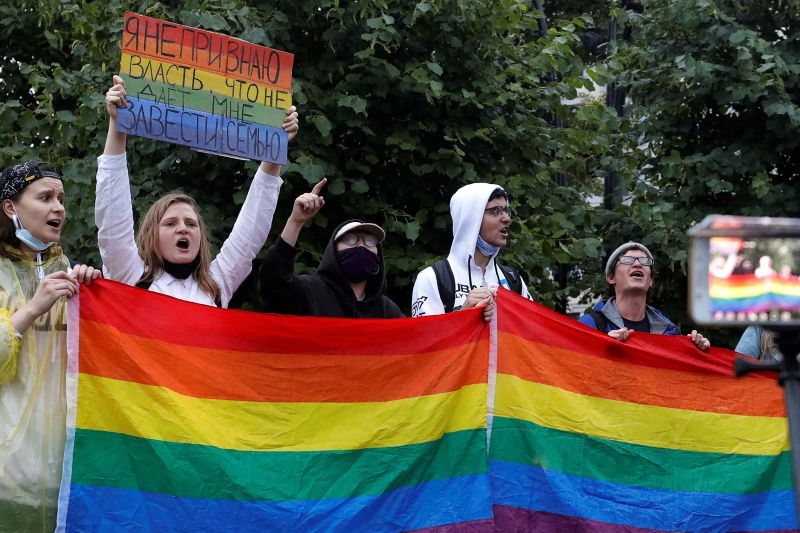
Russian Supreme Court Outlaws International LGBTQ Movement

Russia's top court has labeled the international LGBTQ movement as extremist, resulting in a complete ban on all related activities in the country
Russia's Supreme Court has officially labeled the "international LGBTQ movement" as an extremist organization and has prohibited all related activities within the country. This decision is expected to worsen the already limited rights of Russia's LGBTQ community, as President Vladimir Putin continues to crackdown on their freedoms in an effort to uphold traditional moral values and resist Western liberalism.
The highest court in Russia has sided with the Ministry of Justice in their motion claiming that the LGBTQ community could incite social and religious discord, which violates Russia's Law on Countering Extremism. This decision has been condemned by the UN in a statement. Despite the fact that there is no legally recognized LGBTQ community in Russia due to their discriminatory anti-gay law, the recent ruling has stated that the international LGBT movement is to be recognized as an extremist organization and its activities are to be prohibited in Russia. This ruling comes from state news agency RIA Novosti.
The closed-door hearing lasted for four hours, with only the Justice Ministry in attendance. The proceedings and materials were classified. The decision, as reported by RIA Novosti, takes effect immediately.
LGBT activists take part in a protest against amendments to Russia's Constitution on July 15, 2020.
Shamil Zhumatov/Reuters/File
Two weeks ago, the Justice Ministry announced on its official website that it had started legal proceedings to classify the international LGBT social movement as an extremist organization and to pursue its prohibition in Russia. However, the ministry did not provide further details about the scope of the "movement."
On Thursday, the UN issued a statement expressing strong disapproval of the ruling and cautioning that it could expose individuals associated with such organizations to the threat of criminal prosecution and incarceration. According to the UN Human Rights Chief, Russian law mandates the immediate dissolution of an organization labeled as extremist and imposes a potential 10-year prison sentence for its leaders.
"According to the UN High Commissioner for Human Rights Volker Türk, this decision puts human rights defenders and advocates for LGBT rights at risk of being branded as extremists, which carries severe social and legal consequences in Russia. Although homosexuality was decriminalized in Russia in 1993, homophobia and discrimination against LGBT individuals continue to be widespread."
Recently, there has been a growing number of anti-LGBTQ laws implemented or expanded upon by the Kremlin, signaling a conservative shift that has intensified after the invasion of Ukraine. With presidential elections approaching next year, it is widely anticipated that Putin will extend his rule. In July of this year, Russia enacted a law prohibiting doctors from performing gender reassignment surgeries on children, except in cases related to treating congenital physiological anomalies.
In December of 2022, Putin approved a bill that extended the prohibition on LGBTQ "propaganda" in Russia, criminalizing the promotion of same-sex relationships and the assertion that non-heterosexual orientations are "normal." The legislation also outlined stricter penalties for those advocating "non-traditional sexual relations and/or preferences," as well as gender transitions.
The new law was an extension of legislation introduced in 2013, which banned the dissemination of LGBTQ-related information to minors.














